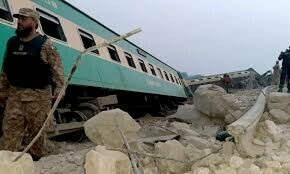LAHORE: Pakistan’s stability and prosperity depend on governance improvement as maladministration has led to alienation of the people, causing political instability.
“Lack of governance is evident in many ways: from precarious law and order in the country to serious social deficit, and poor infrastructure especially electricity shortage,” said a report issued by the Institute for Policy Reforms here on Thursday.
Titled ‘Strategy not Tactics: Better Governance for Social Stability in Pakistan’, the report deals with political stability, participation of people in decision making, and effectiveness of state organisations.
Observing that presently Pakistan’s state institutions `do not have the strength to become an agent of change and growth,’ it says “what the people see in their daily lives is a ‘disinterested government’ and state institutions that do not perform. There is ‘growing concentration of power among economic, financial, and political elites’. The resultant inequality has increased the perception of an unjust state.
“Pakistan does poorly in most governance indices. It may, in fact, be doing worse than before on some indicators. The people want better quality of service, rule of law, and control over corruption,” it says.
Terming civil servants the link between the state and the individual it says a number of issues affect their performance. Political patronage has weakened state institutions and centres of power compete for influence in the country. A political economy that favours the elite leaves limited space for inclusive development.
“Administration is centralised, lacking participation and with minimal accountability. Political parties are weak and the media and civil society, though emerging are not yet in a position to act as a check on executive power. Analysis of the causes of weak governance shows that though civil servants are the face of the state, the responsibility for poor performance is widespread. It includes the political leadership and touches a number of other parts of the society.
“In some respects, military governments do better than elected governments. In the last decade, HDI improved under a military leader, which has plateaued since an elected government came to power,” says the report.
Published in Dawn, September 12th, 2014















































Dear visitor, the comments section is undergoing an overhaul and will return soon.